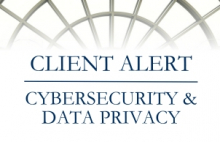Action by June 30, 2016 Required: Updated DOL Guidance Provides Small Window of Opportunity to Potentially Limit Reporting Duties under the Persuader Rule
June 2016In March of this year, the Department of Labor (DOL) finalized changes to what has been known for 50 years as the "Persuader Rule." The final version of the amended rule took effect on April 25, 2016, and will be applicable to arrangements, agreements, and payments made on or after July 1, 2016.
Generally, the Persuader Rule requires employers and their advisors (including outside lawyers and consultants) to file public reports with the DOL regarding any agreement or arrangement: (1) to have those advisors "persuade" employees as to their collective bargaining and union organization rights; or (2) to have the advisor obtain information concerning the activities of employees or labor organizations in connection with a labor dispute (i.e., strike) involving the employer.
Historically, reporting was only required if an employer's advisor engaged in direct persuader activity; i.e., communicated directly with the employer's non-supervisory employees. This was known as the "advice exemption." The amendments to the Persuader Rule, however, limit the "advice exemption" and now require reporting for indirect activity as well. The DOL broadly defines indirect persuader activity to include the following:
- Planning, directing, or coordinating activities undertaken by supervisors or other employer representatives, including meetings and interactions with employees;
- Providing material or communications for dissemination to employees;
- Conducting a union avoidance seminar for supervisors or other employer representatives; and
- Developing or implementing personnel policies, practices, or actions for the employer.
Currently, there are several pending federal lawsuits to stop the implementation of the amended Persuader Rule. Recently, as part of a status report filed in the Arkansas litigation, the DOL stated that the amended Persuader Rule will not apply to any agreement or arrangement entered into prior to July 1, 2016, even if the services and payments under the agreement occur after July 1. Essentially, if employers have signed agreements in place with advisors by the end of June, the parties would be "grandfathered" into the previous, more favorable, interpretation of the advice exemption. If you have any questions about the DOL's recent changes to the Persuader Rule, please contact one of our Labor & Employment attorneys.








